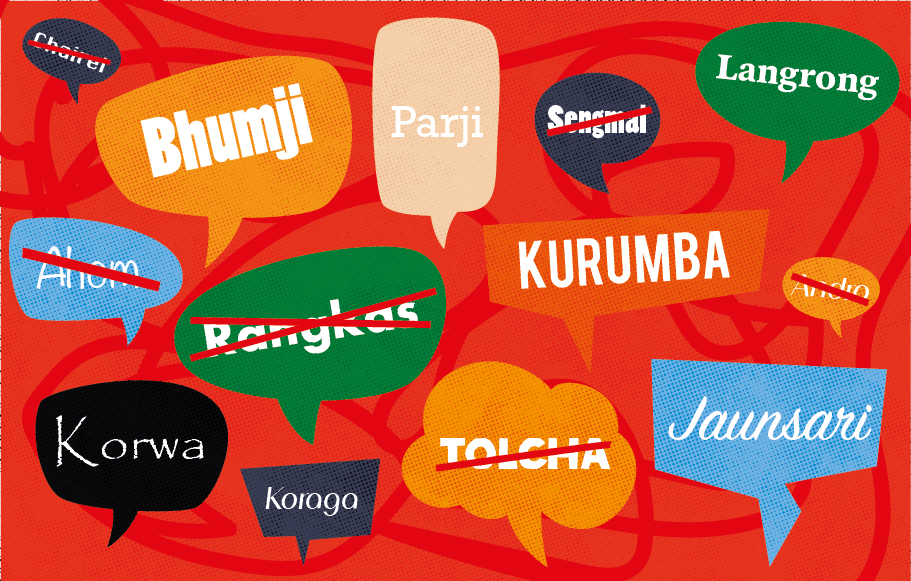In what ways does the loss of indigenous languages signify a loss of knowledge and cultural diversity?

TOK REFERENCING: indigenous language is very important in transmitting the history of a culture throughout generations. This is mainly important for a knower as it gives us as a knower a sense of identity. A knower is only able to know what they are capable of by knowing what they have achieved in the past. The importance of this specific standpoint is vastly explored in this blog page.
Recently I had a cousin of mine who visited me during her spring break. She lived in a foreign country and came back to India to visit the whole family. Upon her visit, I noticed that although she was well versed in English, she struggled to be fluent in Tamil like the rest of the family. Her traditional habits were also much more deviated from our conventional routines. They were much more inclined towards the western conventions. This led me to my knowledge question: In what ways does the loss of indigenous languages signify a loss of knowledge and cultural diversity?
Indigenous language refers to a language native to a particular region. It plays a vital role in carrying a culture’s significance across various generations. It is also much easier to convey the importance of a particular cultural practice through its own native language than by using an alternate language. An example that will help us better understand this would be trying to convey a particular culture-oriented activity in its native language and in another language. In Indian culture it is very often that during poojas’ one inserts joss sticks into a banana to be kept before portraits and sculptures of gods and goddesses. By saying ‘insert the joss sticks in the banana’ in English, one isn’t able to associate the action with a pooja and an auspicious event, it simply comes out as something that is very weird to be doing. Although saying the same in Tamil, or any other relevant native language will help one to better associate the practice with the culture because the language amplifies its importance and one is easily able to associate the relevance of inserting joss sticks into a banana.
A loss of an indigenous language is mostly due to is obsoleteness and a very important event called cultural assimilation. Cultural assimilation in anthropological and sociological terms is process by which minor ethnic heritages are consumed into the dominant ethnic heritage of the society. A relatable example of how this would have happened is closely examining linguistic imperialism, where one language is forced upon other language speakers of that specific region. In 1937 the newly elected Congress government led by Rajaji at that time issued a government order which made learning Hindi compulsory in all government state board schools. This of course had its opposition from major different language speaking states like Tamil Nadu.
When the world is finally out of native speakers of a particular language, artifacts and resources that preserve knowledge of the culture most likely in its native language will become useless to us for there are no more people who can translate the preserved knowledge. This ultimately leads to the loss of the cultural roots and the it is presumable that the culture has been swallowed by a dominant cultural group. This not only decreases the number of cultures in a society but also the cultural diversity of that society and region.
However, in the modern society, awareness on language extinction is favorably or considerably high, and constant efforts are taken to preserve languages. Preserving language starts within ourselves. Stay true to your heritage. It is amazing to learn different languages and cultures, but never compromise your mother language for it. An effort to learn your own heritage can give you a sense of identity and understanding from where you come from. The increase in social media platforms and technology has also eased the process of spreading language and has helped native speakers spread ‘tutorials’ and language resources across the globe in mere seconds.
And lastly, insist on speaking your mother language if a dominant language threatens to take over. This is not something new, and we have done this in the past. When Hindi became compulsory in schools in the state of Tamil Nadu, there were a lot of anti- Hindi imposition movements and protests being held until their language got justice.
Sources:
1. https://www.creativespirits.info/aboriginalculture/language/loss-of-aboriginal-languages
2. https://www.theatlantic.com/national/archive/2009/11/whats-lost-when-a-language-dies/29886/
3. https://interestingengineering.com/what-happens-when-a-language-dies-and-is-forgotten
4. https://www.britannica.com/topic/assimilation-society
5. Dictionary
6. https://en.wikipedia.org/wiki/Ethnic_group
7. https://www.thoughtco.com/what-is-linguistic-imperialism-1691126
8. https://www.thenewsminute.com/article/history-anti-hindi-imposition-movements-tamil-nadu-102983
9. https://ccalanguagesolutions.com/language-preservation-how-countries-preserve-their-languages/
cover image source: https://thefederal.com/the-eighth-column/endangered-indian-languages-face-threat-of-extinction/
10. Banana and joss sticks image: https://twitter.com/sachya2002/status/1411947835222753284
Comments
Post a Comment